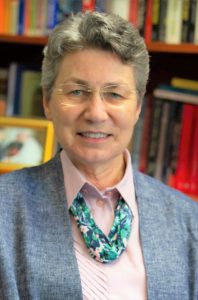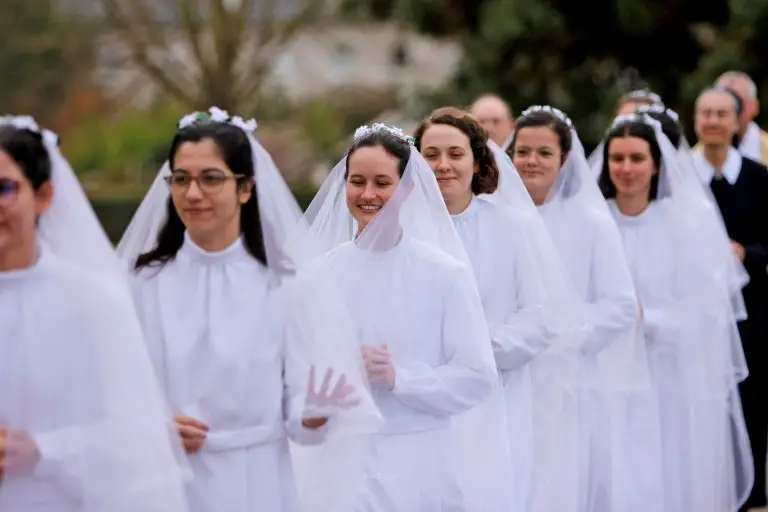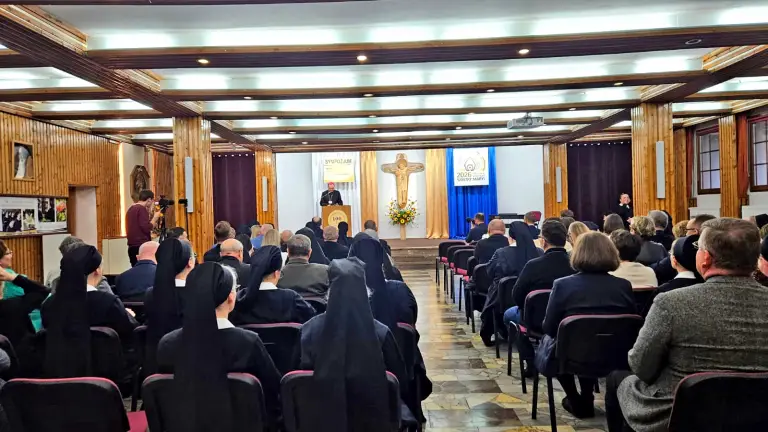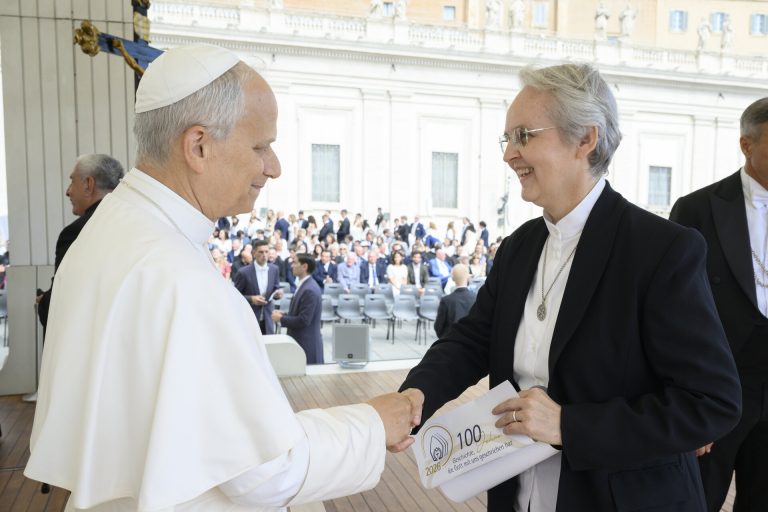Sr. M. Isabell Naumann has recently been appointed a member of the International Theological Commission. She is currently President of the Catholic Institute of Sydney – the Ecclesiastical Faculty for Australia, New Zealand and Oceania – and Professor Ordinarius for Systematic Theology, also an Adjunct Professor in Systematic Theology at the University of Notre Dame, Australia.

Having lectured in the USA, and various countries in Asia and Europe, she served and serves on various national and international academic boards and councils, including two terms at the Pontifical Council for Culture.
As a member of the Secular Institute of the Schoenstatt Sisters of Mary she presently holds the position of province vicar for Australia and the Philippines.
On September 29 the Vatican bulletin published the appointments of new members to the “International Theological Commission”. Sr. M. Isabell was interviewed following the announcement of the appointment.
I presume that you personally received the nomination before the official announcement.
What was your reaction to this news?
Yes, I did receive the nomination before the official announcement, and it took me by surprise. It is certainly an honour to be able to contribute to and collaborate in the important work of the Commission.
The task of the International theological Commission is to examine doctrinal questions of major importance.
Speaking from your experience and background in the Australian/Oceanic and Asian region and cultures, which doctrinal question do you think is most important in our time?
Not one question but interconnected questions regarding Christian theological anthropology in all its dimensions, e.g., human dignity and human work, and of course the integral and complex area of culture, based on the foundations of Christ’s work and teaching, the deposit of Divine Revelation, and as promoted by the best of our Christian tradition. This is the perennial but presently a most urgent task facing the Church.
The Church in Australia is currently conducting a Plenary Council of which you are one of the members.
Which topic of the many proposed themes for the Plenary do you think would be relevant for the Church at large?
According to canon Law, a plenary council is pastoral in nature and should address “the pastoral needs of the people of God” (can. 445) and “what seems opportune” in the areas of: increase of the faith, organization of common pastoral action, regulation of morals and observance of common ecclesiastical discipline.
While Faith is still a prominent influence in the mainstream of Catholic life, and while it is also a fact that both Church and society live off the spiritual and cultural patrimony of generations past, there are many who identify with ‘no particular religion’, and others might consider themselves as vaguely Christian but identify with no particular denomination, or local church community.
From this perspective the area of greater concern would be that of Faith, Faith-identity and Faith-commitment because, primarily we are faced with a crisis of faith in Australia.
The Local Church has strengths and gifts to bring to this urgent task, and I am convinced that the Plenary Council will provide an appropriate platform to address this important issue in an authentic ecclesial manner of respectful dialogue and genuine spiritual discernment under the guidance of the Holy Spirit.
Can you tell us a little more about the importance of the Plenary Council for the Australian Church?
There are several concerns which make up the agenda of the Council, all of importance for the Church in Australia. These include not only questions of governance and structure but also very importantly conversion, prayer and formation.
In relation to the question of Church governance I was a member of a group of experts reviewing Church governance which was requested by the Australian Catholic Bishops Conference and Catholic Religious Australia in response to the Royal Commission into Institutional Responses to Child Sexual Abuse. This project team conducted the review ‘in light of Catholic ecclesiology” (theological principles foundational to the nature of the Church). The findings and recommendations of this review were published on 1 May 2020 under the title: ”The Light of the Southern Cross”: Promoting Co-Responsible Governance in the Catholic Church in Australia. It is clear that many of these recommendations will provide meaningful material to support the discussions during the Plenary Council.
The agenda questions related to formation include matters of priestly formation. I was the Dean of Studies in the Seminary of the Archdiocese of Sydney for 11 years and so, together with our founder’s pedagogy and this experience, I hope to be able to contribute especially in this field of enquiry.
What do you think could be your personal contribution to the International Theological Commission as President of the Pontifical Catholic Institute Sydney and as a member of the Secular Institute of the Schoenstatt Sisters of Mary?
My personal contribution will certainly be inspired by the charism of our Founder and the richness and depth of our Schoenstatt spirituality but also by the many years of my academic teaching, research and applied theological interpretation in academic leadership and governance.
Thank you, Sr. M. Isabell, for your thoughts and your vision for the future. May our Blessed Mother implore the gifts of the Holy Spirit for you and may our Founder intercede for all your needs.



